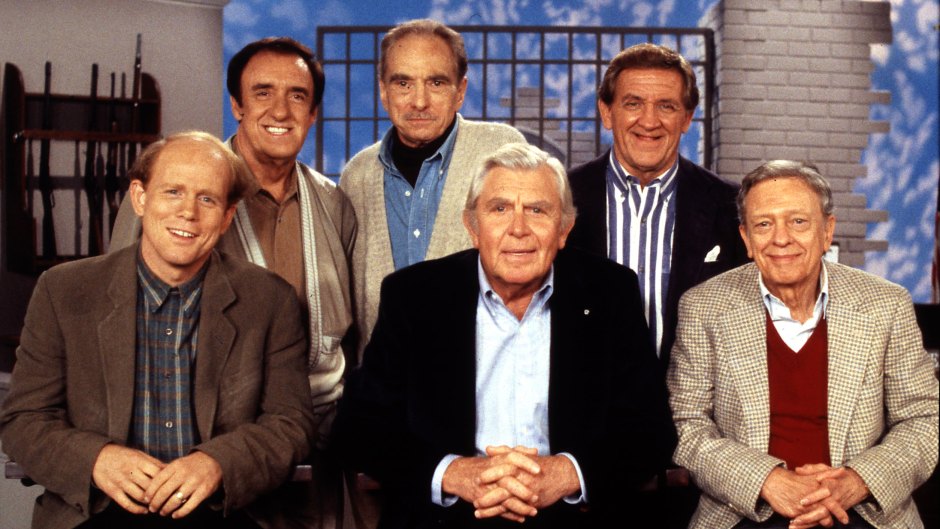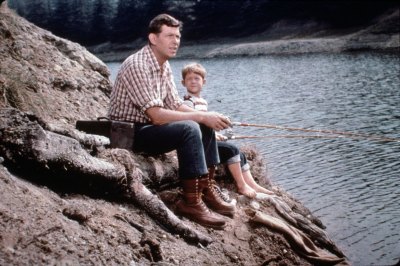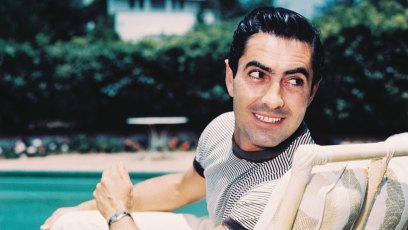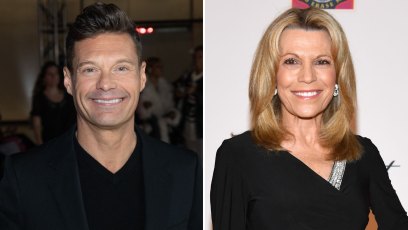
NBC-TV/Kobal/Shutterstock
Ron Howard Witnessed ‘Very Real Adult Problems’ as a Child Star on ‘The Andy Griffith Show’
In the opening credits of The Andy Griffith Show, Opie Taylor picks up a stone and tosses it into the bucolic waters of Myers Lake, a fishing hole on the outskirts of Mayberry. In reality, the famous scene was filmed at California’s Franklin Canyon Lake and little Ronny Howard, then 6, couldn’t throw very far. “My skinny little arm was not powerful enough to get that rock into the water,” Ron confesses in his new book, The Boys: A Memoir of Hollywood and Family. For the next take, Ron pretended for the camera and the prop master, hidden behind a tree, threw the stone for him.
As a child growing up on the set of The Andy Griffith Show, Ron, 67, became schooled in the art of make-believe, but he also witnessed some very real adult problems, prejudices and ugliness. The performer, who went on to become an acclaimed director, and his brother, actor Clint Howard, 62, with whom he cowrote The Boys, credit their parents, Rance and Jean Howard, for keeping them safe and grounded during their Hollywood upbringing. Their protectiveness was “rooted in love and fear, not any stage-parent concept of protecting their cash cows,” Ron says.
It’s important that someone was looking out for Ron, because the other adults on the set at Desilu Studios, where the show was filmed, didn’t censor their language or actions in front of him. The crew were “salty old characters who swore like sailors and drank like fishes,” he recalls. The prop master was often drunk by lunch. It being the 1960s, everyone smoked constantly onset, with no regard for anyone’s health or comfort. “My eyes were always burning,” Ron says.
The on-set bathroom was also an education for an innocent young boy. Ron recalls puzzling over the obscene, anatomically correct graffiti that covered its walls. “You see, some men, when they sit on the toilet, they like to draw penises,” his father, Rance, tried to explain, adding that Ron should never do such a thing himself.

And although the crew always treated Ron with “empathy and kindness,” they did not extend the same courtesy to Jim Nabors, the gay actor who played Gomer Pyle. Jim’s sexuality was a “don’t ask, don’t tell” open secret, and Ron remembers the crew calling him disparaging names like “homo” behind his back. “And not with any hint of kindness,” says Ron.
Andy Griffith, who played his father, Sheriff Taylor, was a “wonderful and bighearted” man, says Ron, but he and costar Don Knotts were both preoccupied with their failing marriages. The pair of close friends, who had met on Broadway in 1955’s No Time for Sergeants, commiserated a lot, often within Ron’s earshot. “Both men were visiting psychologists to work through their stuff,” says Ron, who remembers Andy telling Don how his doctor had brought up the subject of latent homosexuality in a session. “I don’t think I qualify for that one … What about you, Don?” Ron remembers Andy asking.
Andy also said his doctor suggested that he worked extra-long hours on the show to avoid going home to his wife. “I saw him endure genuine pain,” says Ron, who recalls Andy returning from Christmas break with a bandaged hand. “I got drunk, I got mad, and I put my fist through a door,” he told the cast.
Meanwhile, Ron suffered his own growing pains. Sadly, starring on The Andy Griffith Show made him a magnet for bullies at school. “They all figured out that Opie rhymes with dopey, mopey and soapy,” says Ron, who admits that for a time, he “didn’t feel safe going to the bathroom.” He tried to avoid it until the inevitable day he publicly wet his pants.
Despite his misery, Ron’s parents urged him to stick it out for the school year. “It was a rough path,” admits Ron, who got into several fights, but “before long, I had my own posse of buddies.”
On The Andy Griffith Show, Ron grew up faster than a “normal” kid, but he has few regrets. Despite all the adult angst he witnessed, he also saw acts of kindness that have stuck with him. He recalls how Howard McNear, the actor who played Floyd the barber, suffered a serious stroke in the third season. “Andy, ever magnanimous, didn’t want to lose Howard,” he remembers, relating how the crew devised carefully hidden supports to help Howard stand for his scenes and keep his job.
It became another valuable lesson to Ron about the magic of Hollywood. “I will forever owe a debt to Opie Taylor,” he says. “The experience of inhabiting that character, walking a mile in his Keds, defined my early life.”







































